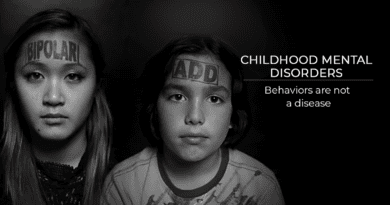When Personality Traits Become a Disorder
Personality traits define who we are, our thoughts, emotions, and behaviors that shape how we interact with others and the world around us. However, when these traits become too rigid, extreme, or maladaptive, they can turn into personality disorders, significantly impacting an individual’s daily life and relationships.
This blog delves into the factors that transform personality traits into disorders, the challenges faced by those affected, and the critical role of psychologists in guiding individuals toward recovery.
Understanding Personality Disorders
Personality disorders are characterized by long-lasting patterns of thought, behavior, and emotional experience that differ markedly from what is considered typical within society. These patterns typically begin in adolescence or early adulthood and manifest in at least two of the following areas:
- Cognition (how one perceives and interprets oneself, others, and events).
- Affectivity (emotional response).
- Interpersonal functioning.
- Impulse control.
Dr. RK Suri highlights that the distinction between personality traits and personality disorders often depends on the extent of their impact. When traits cause dysfunction and distress, they may cross into the realm of personality disorders.”
How Personality Disorders Develop
- Biological Factors: Genetic predisposition can increase susceptibility to personality disorders.
- Environmental Influences: Childhood trauma, neglect, or inconsistent caregiving are significant contributors.
- Cultural Pressures: Societal norms and expectations can exacerbate certain personality tendencies, leading to maladaptive behaviors.
Types of Personality Disorders
Personality disorders are grouped into three clusters:
- Cluster A (Odd or Eccentric)
Disorders include Paranoid, Schizoid, and Schizotypal Personality Disorders. - Cluster B (Dramatic, Emotional, or Erratic)
Disorders comprise Borderline, Narcissistic, Histrionic, and antisocial personality disorders. - Cluster C (Anxious or Fearful)
Disorders include Avoidant, Dependent, and Obsessive–Compulsive Personality Disorders.
Warning Signs of Personality Disorders
- Persistent interpersonal conflicts.
- Inability to adapt to changing circumstances.
- Emotional instability and impulsivity.
- Difficulty maintaining relationships or employment.
Expert Psychologists Offering Support
Below is a list of esteemed psychologists who specialize in treating personality disorders. Their expertise spans various therapeutic techniques, providing comprehensive care tailored to individual needs.
Dr. R. K. Suri
A seasoned clinical psychologist with vast experience in evidence-based therapies, Dr. Suri is known for his work in identifying and treating complex personality disorders. He focuses on helping clients achieve emotional regulation and self-awareness.
Ms. Sakshi Dhankhar
Ms. Dhankhar excels in using Cognitive Behavioral Therapy (CBT) and Dialectical Behavior Therapy (DBT) to address emotional instability and interpersonal challenges. Her patient-centered approach has helped many clients regain confidence and control over their lives.
Ms. Mansi
Specializing in fostering emotional resilience, Ms. Mansi combines psychological theories and practical strategies to guide individuals toward healthier behaviors and improved self-awareness.
Mr. Utkarsh Yadav
With a focus on early intervention, Mr. Yadav helps clients identify maladaptive behavior patterns and develop coping mechanisms to manage stress and improve relationships.
Ms. Sangeeta Pal
An expert in managing anxiety-linked personality disorders, Ms. Pal employs mindfulness-based techniques to foster emotional stability and confidence.
Ms. Dhrishti
Ms. Dhrishti specializes in treating Cluster A disorders, emphasizing trust-building and improved social interactions. Her compassionate methods create a safe space for clients to address their challenges.
Ms. Shrishti
A proponent of holistic therapy, Ms. Shrishti focuses on emotional regulation and self-awareness to help clients navigate the complexities of personality disorders.
Ms. Tanu Sangwan
Ms. Sangwan integrates Schema Therapy and CBT to address deeply rooted maladaptive beliefs. Her innovative techniques have proven effective in treating a wide range of personality-related issues.
Treatment Approaches
Managing personality disorders typically requires a blend of psychotherapy, medication, and supportive networks:
- Psychotherapy:
- CBT: Focuses on changing negative thought patterns.
- DBT: Helps manage intense emotions and impulsivity.
- Schema Therapy: Targets long-standing patterns and beliefs.
- Medication: Used to manage co-occurring conditions like anxiety and depression.
- Support Systems: Family counseling and group therapy play a vital role in recovery.
Breaking the Stigma
Personality disorders are often misunderstood and stigmatized. Ms. Shrishti emphasizes, “Empathy and education are essential in reducing stigma and encouraging individuals to seek help without fear of judgment.
ThePsychowellness and TalktoAngel: Trusted Platforms for Mental Health Support
Online counseling services TalktoAngel and ThePsychowellness are dedicated to improving mental health and wellness.
ThePsychowellness offers comprehensive in-person counseling services in Delhi NCR, specializing in conditions such as autism, family counseling, and personality disorders. Backed by a team of seasoned experts, including Dr. R. K. Suri provides a safe and supportive environment for individuals seeking personalized care. TalktoAngel, on the other hand, is a cutting-edge online counseling platform offering accessible mental health services globally. Renowned for its intuitive interface and highly skilled therapists, such as Ms. Sakshi Dhankhar, Ms. Mansi, Ms. Sangeeta Pal and Mr. Utkarsh Yadav, it caters to a diverse clientele, providing tailored solutions for issues ranging from stress and anxiety to relationship challenges. Together, these platforms ensure that mental health support is both effective and accessible.
Conclusion
Personality disorders can present significant challenges, but with timely intervention and the support of experts from trusted organizations like ThePsychowellness and TalktoAngel, individuals can lead more balanced and fulfilling lives. Whether you prefer in-person therapy or online counseling, reaching out for help is the first step toward managing these conditions and achieving personal growth. For more information or to book a session, explore the services offered by these esteemed platforms and their skilled professionals.
References
- American Psychiatric Association. (2013). Diagnostic and Statistical Manual of Mental Disorders (5th ed.). Arlington, VA: American Psychiatric Publishing.
- Millon, T., & Davis, R. D. (1996). Disorders of Personality: DSM-IV and Beyond. New York: Wiley.
- Linehan, M. M. (1993). Cognitive-Behavioral Treatment of Borderline Personality Disorder. New York: Guilford Press.
- Psychowellness Center. (2024). Services for Autism and Family Counseling. Retrieved from https://psychowellnesscenter.com
- TalktoAngel. (2024). Online Counseling Services for Stress, Anxiety, and Relationship Issues. Retrieved from https://www.talktoangel.com




